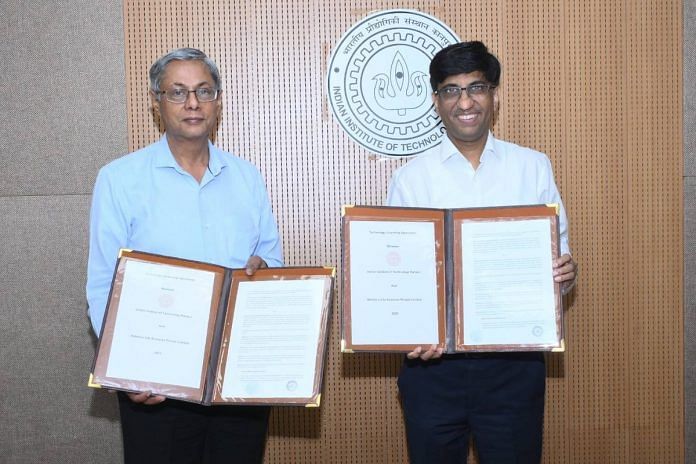
New Delhi: In a first, the Indian Institute of Technology (IIT), Kanpur, has signed a memorandum of understanding (MoU) with Reliance Life Sciences Pvt. Ltd. to license a technology “which has the potential to revolutionise the field of gene therapy — especially for various genetic eye diseases”, claimed a statement released by IIT Friday.
Developed by professor Jayandharan Giridhara Rao and Shubham Maurya of the Department of Biological Sciences and Bioengineering (BSBE), IIT Kanpur, this is the first time that a gene therapy-related technology has been developed and transferred from an academic institution to a company in India, added the statement.
Gene therapy is a way to replace a faulty gene with its functional version to treat disorders and is one of the most potent applications of recombinant DNA technology, wherein DNA from multiple sources are combined to efficiently deliver a healthy copy of the faulty gene, so that production of protein from the introduced gene is sustained for life.
To enable this, the therapeutic DNA molecule is delivered using a virus that can infect human cells.
According to IIT, the patented technology for which MoU was signed with Reliance Life Sciences, has shown promise in correcting vision impairment in animal models of blindness.
“IIT Kanpur is committed to developing impactful technologies in the field of healthcare, and we are delighted to see the licensing of this gene therapy technology to Reliance Life Sciences,” said Abhay Karandikar, director, IIT Kanpur.
Karandikar added: “Gene therapy using viral vectors has recently emerged as a potent tool in the field of molecular medicine. We believe that this technology holds great promise for treating a wide range of hereditary eye diseases including Leber congenital amaurosis, an eye disorder that is present from birth; and Retinitis pigmentosa, a disease causing progressive sustained vision loss.”
(Edited by Smriti Sinha)
Also read: Gene mutation made modern humans produce more neurons than Neanderthals

COMMENTS